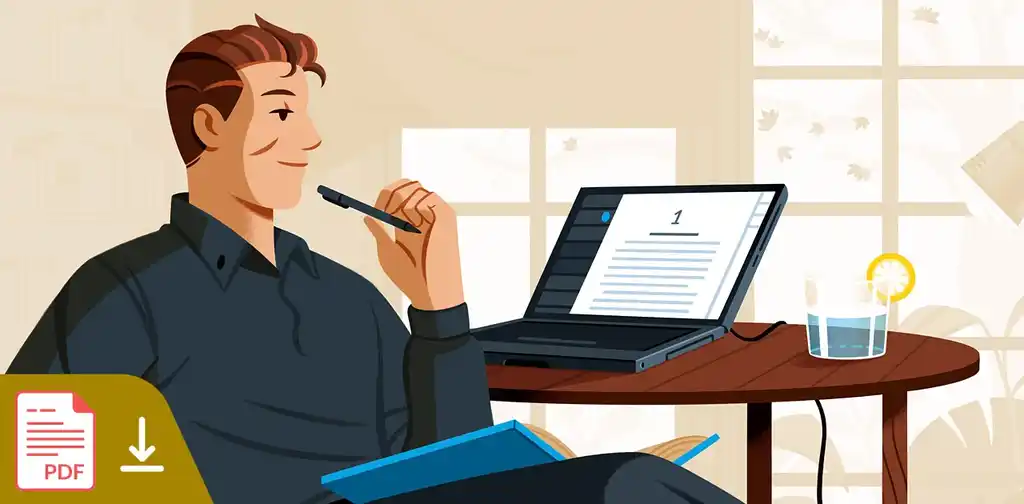Blog •
Posted on Apr 11, 2025
Working In a War Zone: How Reedsy Helps Me Freelance in Ukraine
The Reedsy Network
Reedsy's publishing freelancers come from all over the world and specialize in various disciplines, from editing to design.
View profile →Linnea Gradin
The editor-in-chief of the Reedsy Freelancer blog, Linnea is a writer and marketer with a degree from the University of Cambridge. Her focus is to provide aspiring editors and book designers with the resources to further their careers.
View profile →Anna Bowles went freelance after working as a commissioning editor at Hachette UK and is one of Reedsy’s longest-standing and best-reviewed children’s and YA fiction editors. She’s also a novelist, having published Rapids a few years ago, and a poet with a number of competition placings and magazine publications to her name. She is British and divides her time between London and East Ukraine.
You’re where?
That’s a reaction I often get when I tell people that, over the past two years, I’ve spent about a third of my time in Ukraine, mostly in the east. Currently I’m in Kramatorsk, in a flat I’ve rented for a few weeks, listening to the occasional boom from the front line about 20 km away.
After arriving in town from Dnipro yesterday, I’ve messaged about a dozen people about the possibility of interviews for my blog and arranged to fund the purchase of a second-hand tractor for a Romani family displaced from occupied territory to the town of Pyatykhatky. This evening I’m writing this blog post and working on a developmental edit of a YA fantasy novel for a Reedsy client.
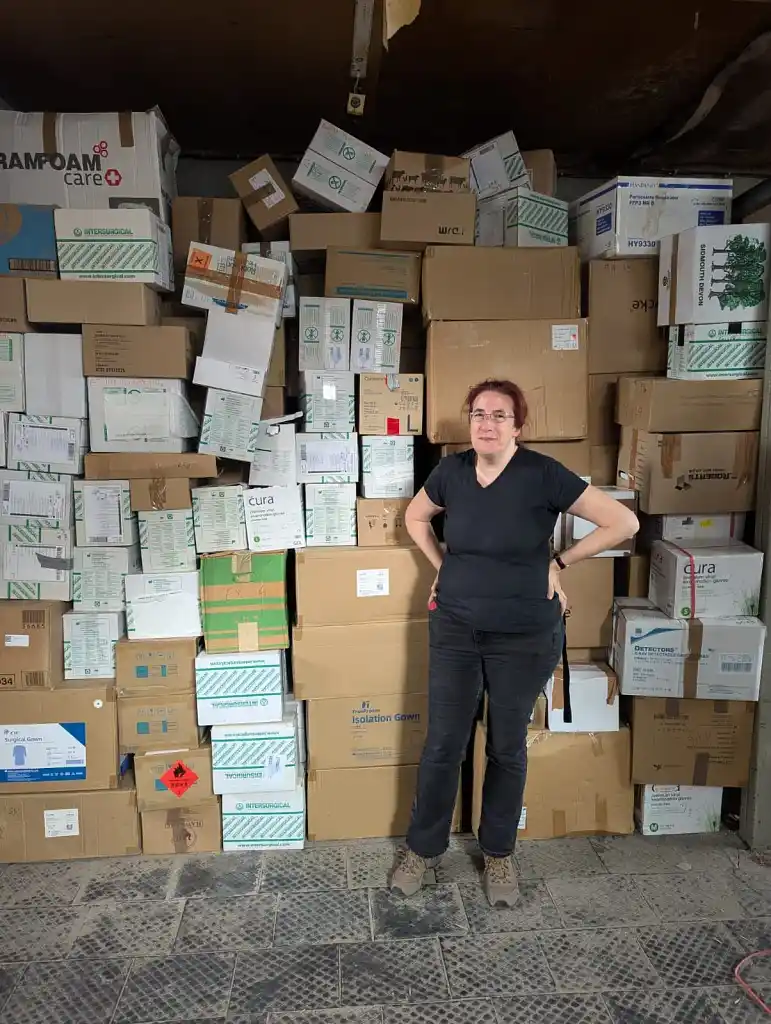
I still do copy-editing for big publishers, but it’s primarily thanks to Reedsy that I can work anywhere in the world. I speak Russian (as do almost all Ukrainians themselves, and it in no way equates to being Russian or supporting Russia) and have a close friend in Kyiv. In January 2022 we were planning a road trip to Mariupol to meet up with some of her friends. That didn’t happen, but I certainly met her friends. They’re a network of independent filmmakers – called Freefilmers – and after Russia’s full-scale invasion they transformed themselves into a small humanitarian organisation. I help in any way I can, abroad or in Ukraine.
You do what?
Sometimes help means unloading an aid lorry or sorting through jumbled medical aid donations. Occasionally I act as interpreter for other foreign volunteers or help at an old people’s home in Kharkiv. This month, though, I’m focusing on blogging on my Substack, Anna Talks Ukraine.
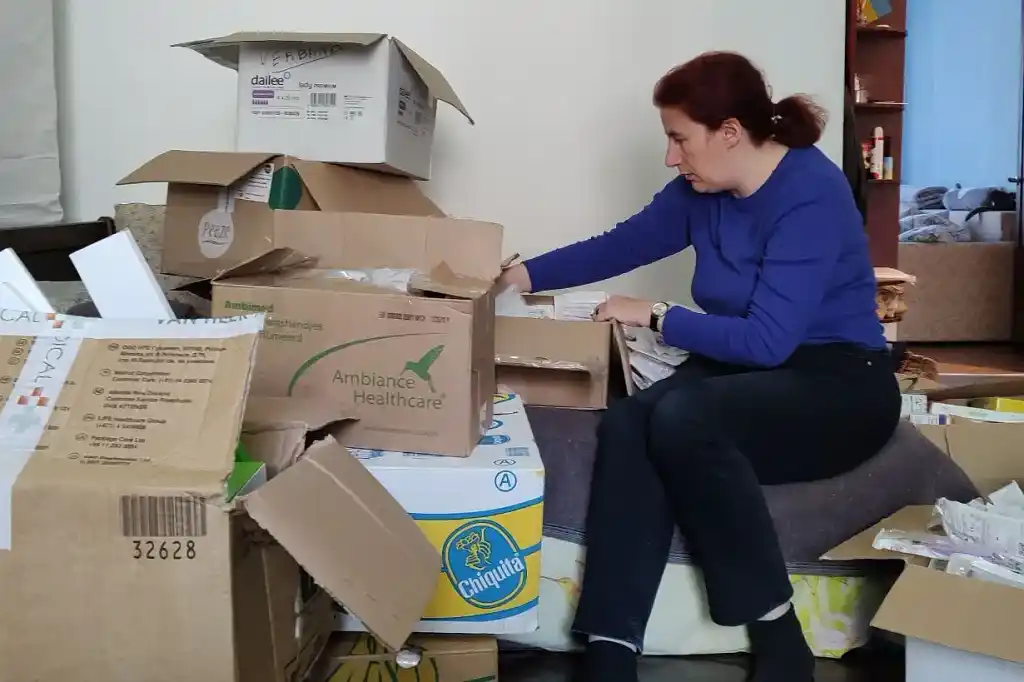
I don’t agree with bashing the ‘mainstream media’ but its coverage is inevitably limited in certain areas, and as an unpaid, independent volunteer, I can write about what I like, including a three-part deep dive into the contrast between international aid agencies that waste huge sums of money and on-the-ground Ukrainian organisations who survive on a shoestring (if at all); or a piece about the hostility of banks to civilians living near the occupied territories, who are often deprived of essential financial services because of the overzealous application of international sanctions. I also spend time with and interview local and international volunteers, such as the German organisation Universal Aid Ukraine who supply food and medical supplies to villages near the front line, and conduct evacuations.
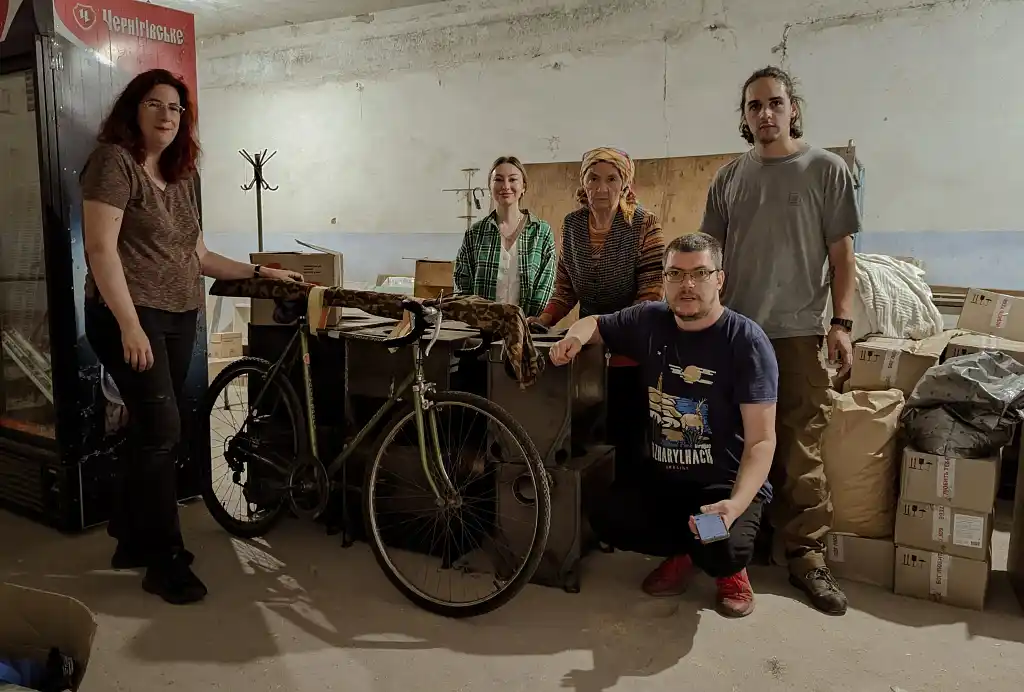
At the moment my blog has about 500 subscribers, and it’s read by analysts, donors, journalists and others who want a serious in-depth picture of life on the ground here. To quote Brian Bonner, former editor of the English-language Kyiv Post, “Anna gets around to places and angles and people that most don’t. And we, in fact, learn things about Ukraine.”
A few days after the full-scale invasion, in February 2022, I started writing poetry for the first time since my teenage years. I write both to process my own feelings and to raise awareness. I’ve now racked up a number of small magazine publications and competition placings. ‘Tania’s House’, which is about a real person I met in a deoccupied village in the Kherson region on an aid trip, came second in the Edward Thomas Fellowship competition. I’ll hand the £80 (£100 before tax) prize money to Tania when I hopefully pass through her village later in April.
Where possible I also act as a contact broker. For example, last year I visited a special needs school that had been half-destroyed by a rocket strike. Some donors in the UK read the post and offered to fund the school to partly reopen in safe, underground premises. As you might imagine, this is incredibly rewarding.
But isn’t it dangerous?
Nowhere in Ukraine is safe from long-distance missiles, but that doesn’t mean the dangers are the same everywhere. Cities within range of glide bombs (the kind of ‘dumb’ bombs used in earlier conflicts but now fitted with wings and satnav) are struck more often, and settlements within artillery range (15km) are regularly pounded. I’ve been within artillery range on a couple of supply runs with Universal Aid Ukraine, but no more.
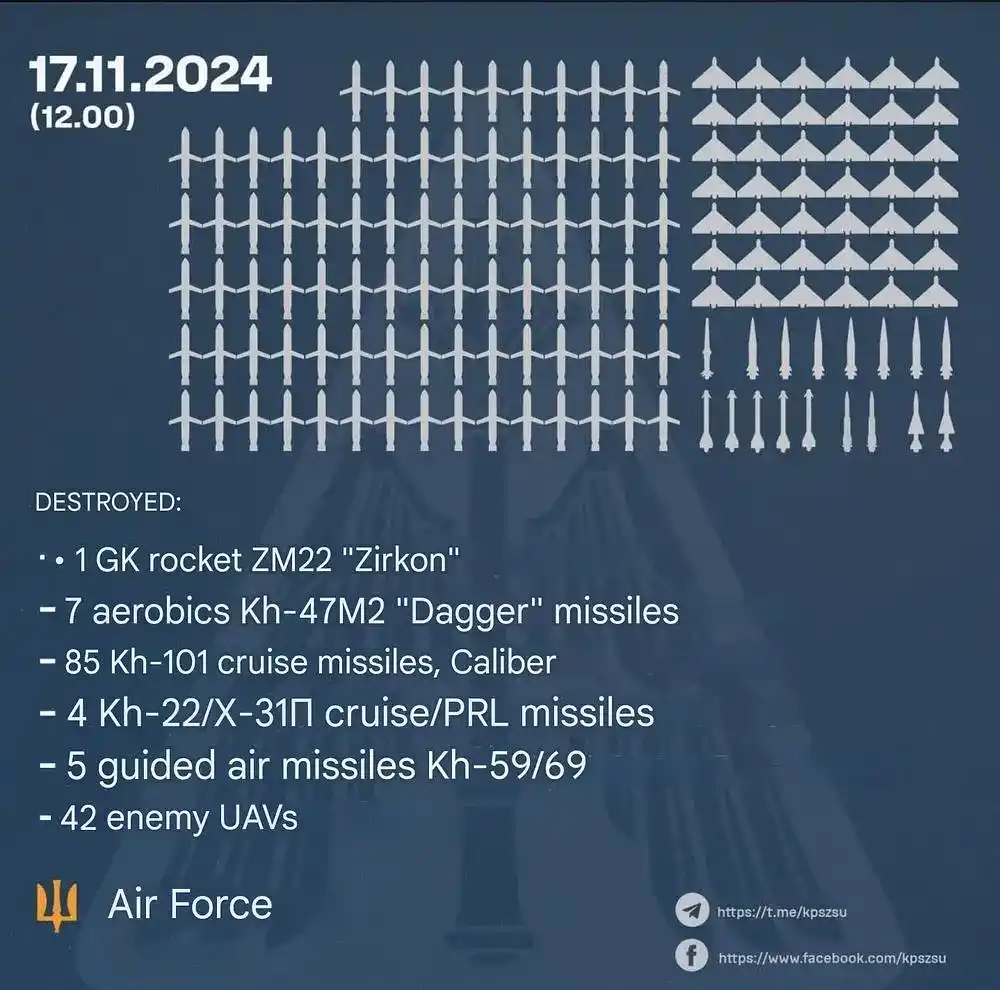
On the other hand, one of the first glide bombs to hit Kharkiv city landed about 300 yards from the old people’s home where I was volunteering at the time. Then another one hit almost as close a few nights later. The building shakes and you can feel a blast wave pass through as a kind of thick pulse against your skin.
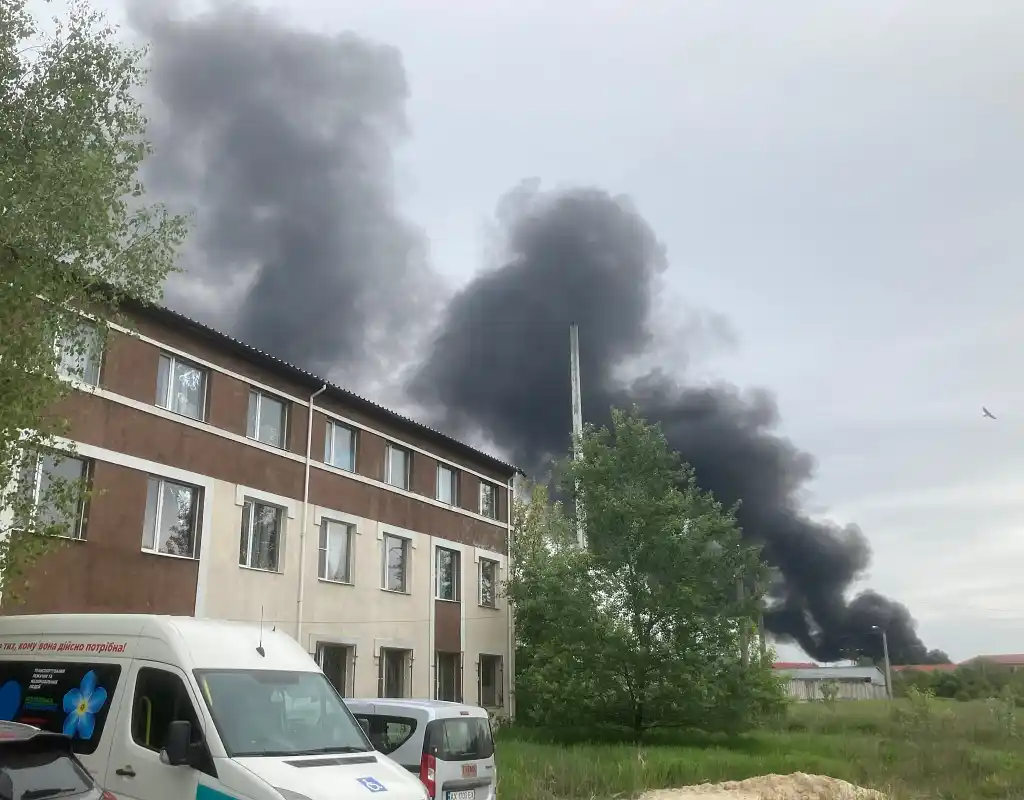
And all the time I’m editing too. Most cities in Ukraine have as many coffee shops per square metre as London – some more, I think – and since I don’t register air-raid sirens any more I can work there just as comfortably, and concentrate as effectively, as back home. I’m in two minds about telling clients where I am, because sometimes people like to feel they’re helping support Ukraine, as I give 20% of my income after tax to my friends’ grassroots work, but other times I get an ‘Oh! I don’t want to bother you!’ response.
To that I say, “Writers, please bother me!” Bothering me with your wonderful projects is what makes all this possible! One of the best things about Reedsy is that I don’t have to hunt for clients. Reedsy charges freelancers 10% of their fee, but that is more than made up for by the time saved. I don’t have to worry about promoting myself, finding clients, or invoicing. That’s time I can spend on more important things.
How do you balance such different work?
Freelancing gives me the flexibility to go when and where I’m needed, but sometimes I just have to laugh at the contrast between paid work and my volunteer mission.
In April 2023, for instance, during my first experience of sheltering in a corridor from a rocket attack on the city of Zaporizhzhia, I got out my laptop and started working. Life here doesn’t stop, everyone needs to earn income while the missiles rain down and the drones buzz around the tower blocks, and my client’s Victorian-era YA historical novel wasn’t going to copy-edit itself.
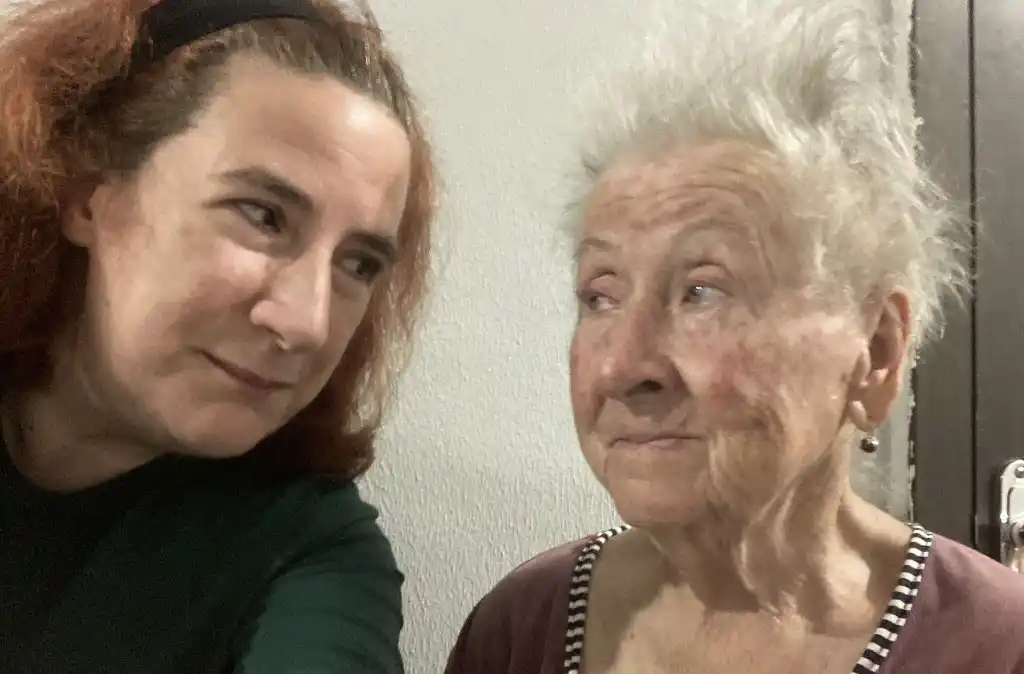
A year later, in May 2024, I was sitting in a coffee shop in Kharkiv – so close to the border that it only takes missiles 90 seconds to arrive, making the air-raid warnings blaring in the background largely irrelevant – writing up advice for a client on how to balance their Middle Grade protagonist’s real-world problems with their fantasy adventures. Meanwhile, I could hear the occasional explosion around the city. I had a local Telegram channel open, scrolling alerts down the right-hand side of my screen to see if the Russians made a breakthrough, in which case we would have to evacuate the old people’s home.
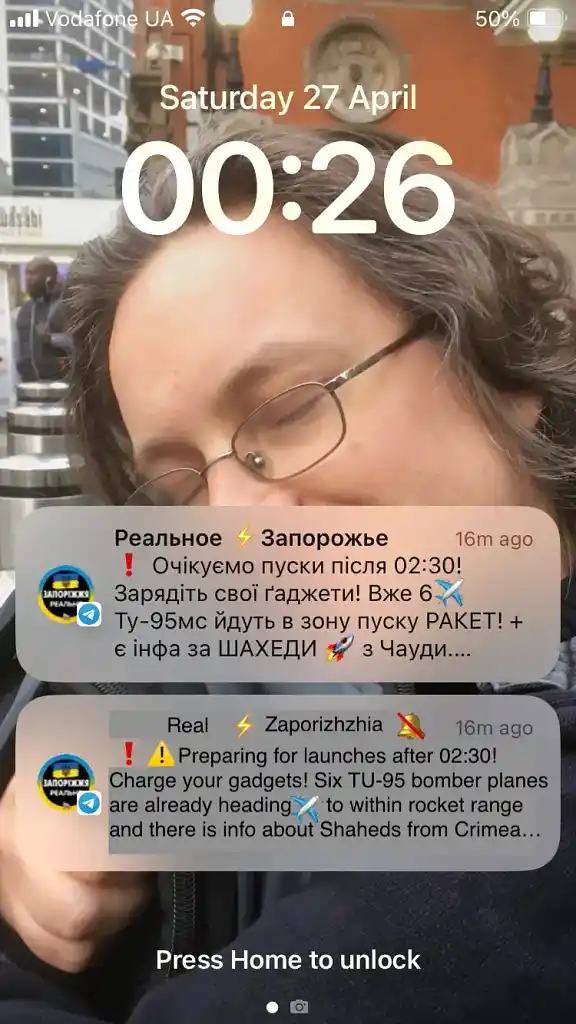
Of course, any work I do under pressure gets checked once I’m in a calmer situation before it goes back to the client, but at this point I’m pretty good at concentrating whatever the circumstances. Considering the problems of young protagonists provides me with a respite from the challenges Ukrainians face and that I sometimes share. And at its best, fiction can teach young people about resisting oppression and human empathy. This, though, is one of the trickiest challenges for children’s fantasy writers in particular: not to produce oversimplified narratives about plucky individuals who triumph over one-dimensional warlords by the power of basic moral decency and a little bit of magic. That’s good for a moment of wish fulfilment, but lasting narratives involve greater struggle. If you want advice on how to do that, I’m here.
Finally, while I wouldn’t quite say that living in a war zone is helpful to my work, it can provide a useful sense of proportion. Inevitably, in the course of hundreds of collaborations, I’ve had one client complaint (which Reedsy mediated, another of the many advantages of using this site). It’s never nice receiving a complaint but dealing with it while sitting in the shower tray of a rented flat as Russia struck the city enabled me to view it philosophically.
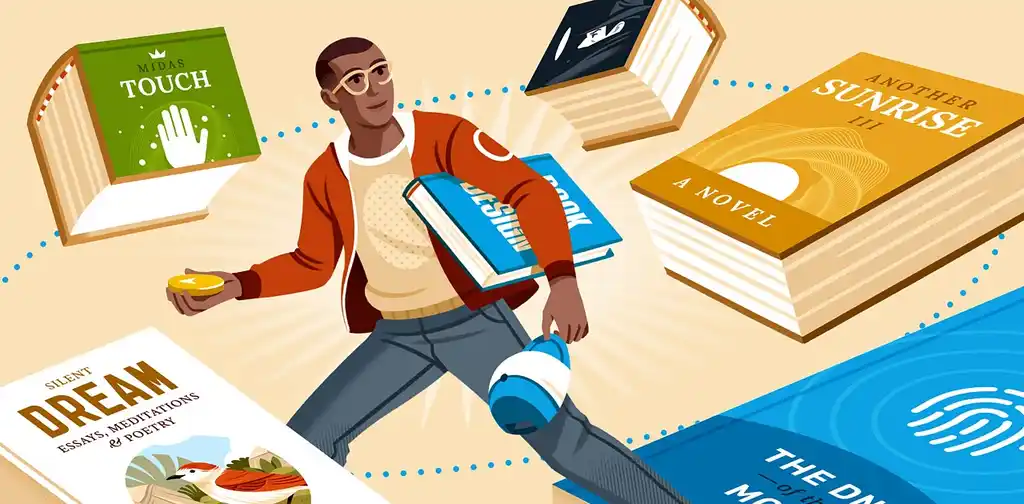
JOIN REEDSY
Find exciting new projects
We connect publishing professionals with our community of 1,500,000 authors.
What does the future hold?
I’ve lined up a couple of interviews in the immediate future: a police officer who protected journalists in Mariupol so they could bring the story of the destruction to the outside world, a local group who provide emergency aid when a missile hits a residential area and a British de-miner who’s been working in Ukraine since 2014, amongst others. By the time you read this, hopefully they’ll be posted.
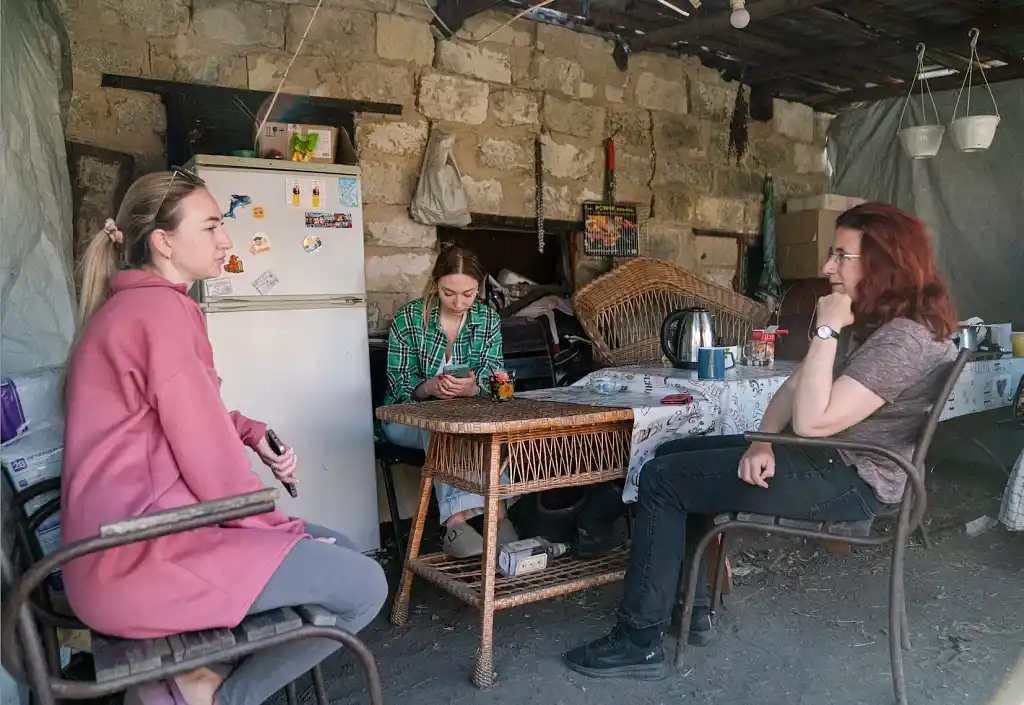
Then, in late April I’ll join my Mariupol friends on a trip to the Kherson region to deliver medical equipment and construction tools to more villages. In May, it’s back to the old people’s home in Kharkiv for a few weeks.
There will probably be a few missile encounters, and certainly a few editorial assessment reports and copy-edits along the way. In the long term, if you have a children’s book brewing and are seeking an editor on Reedsy, please consider sending your work my way so I can keep helping Ukraine. While Reedsy is not a political space, I suspect most people reading this are sympathetic to the Ukrainian cause. Please also take a look at my travel blog: you can subscribe for free, and 100% of after-tax income from paid subscriptions goes to Ukrainian grassroots causes.
In the West, we like hero narratives where everything looks bleak until the protagonist triumphs in the end. I edit a lot of them! And this is the time for us to live up to our own aspirations. I often think of the point in The Lord of the Rings where Frodo says,
You and I, Sam, are still stuck in the worst places of the story, and it is all too likely that some will say at this point: “Shut the book now, dad; we don't want to read any more.”
“Maybe,” said Sam, “but I wouldn’t be one to say that. Things done and over and made into part of the great tales are different.”
This tale is still being written, and we need to act like the heroes we love to read and write about, and fight back in whatever way we can, whether we’re Frodo bearing the Ring or Sam scraping together dinner to keep him going.

